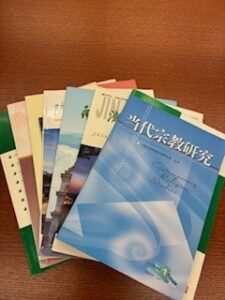 This collection of unofficial Islamic publications – including periodicals, newspapers, magazines, books, booklets, symposium proceedings of conferences in Islamic studies, photos, digital images, and slides – was donated by Dr. Wang Jianping 王建平 (a retired professor of Islamic studies at Shanghai Normal University) to the Harvard-Yenching Library, Harvard University in 2017. Dr. Wang noted that he was “inspired and encouraged by Christian missionaries such as Claude Pickens, Carter Holton, and Edwin Carlson, whose children donated their parents’ personal materials on Islam in China to Harvard University.”
This collection of unofficial Islamic publications – including periodicals, newspapers, magazines, books, booklets, symposium proceedings of conferences in Islamic studies, photos, digital images, and slides – was donated by Dr. Wang Jianping 王建平 (a retired professor of Islamic studies at Shanghai Normal University) to the Harvard-Yenching Library, Harvard University in 2017. Dr. Wang noted that he was “inspired and encouraged by Christian missionaries such as Claude Pickens, Carter Holton, and Edwin Carlson, whose children donated their parents’ personal materials on Islam in China to Harvard University.”
Professor Wang writes, “Students and scholars worldwide will benefit from exploring the rich collections on Islam in China, which will strengthen research in various disciplines in the humanities and social sciences. The collection will thus contribute to multi-disciplinary academic research at Harvard University as well as in the wider academic world.”
According to Professor Wang, these Islamic periodicals can be catalogued into six types, in accordance with how they are sponsored and their releases:
- Islamic magazines published by the Islamic Associations in provincial or local level (e.g., Gansu Muslims甘肃穆斯林, Shanghai Muslims上海穆斯林, Guangzhou Muslims广州穆斯林, Shanxi Muslims山西穆斯林, Qinghai Muslims青海穆斯林, Yunnan Muslims云南穆斯林, Shaanxi Muslims陕西穆斯林 and Jinan Muslims济南穆斯林). These periodicals represent some kind of semi-official publications which report news and information of the local Islamic associations, and are led by the bureaus of the Ethnic and Religious Affairs in the local governments. The funds that support the publications come from the governmental channel or from the budget of the Islamic associations. These magazines are run by the Islamic associations following the governmental guidelines.
- Magazines published by the Muslim Non-Governmental Organizations, such as Lv ying (绿荫Hui and Salar Charity Association in Qinghai青海回族撒拉族慈善救助会), Wo men (我们the public charity organization in Gansu), Hui chun (回春a charity organization in Beijing), Yunnan Huizu yan jiu (云南回族研究a Hui Muslim academic association in Yunnan), Zhongguo Huizu xue (中国回族学a Hui national academic association based in Henan), etc. These periodicals have certain degree of freedom since their funds mainly come from their organization and donations from the Muslim communities, even partly from the state or local government.
- Islamic publications sponsored by the Muslim entrepreneurial organizations, such as Islamic Cultural Research (伊斯兰文化研究an entrepreneurial corporation企业家联合会 in Xi’an of Shaanxi). The content depends upon the entrepreneurs personally, but more likely have news and information about the trade and economic exchanges between China and the Islamic world. Their funds are entirely provided by Muslim corporations and businessmen.
- Publications issued by the Islamic schools or colleges such as Amin (阿敏a madrasah in Henan), Xin yue hua (新月华a Madrasah in Beijing), Xin yue (新月Islamic school in Pingliang平凉 of Gansu) etc. These periodicals cover more news and information about religious studies, madrasah activities etc. Their funding comes from community donations and support of Muslim businessmen.
- Periodicals published entirely by individuals or a group of Muslim intellectuals, such as Kai tuo (开拓a group of the Hui in Lanzhou of Gansu), Gao yuan (高原a converted Han Muslim in Tonghai通海, Yunnan), Guan zhu (关注a Muslim scholar in Shanghai but registered in Shenzhen深圳). These periodicals usually face many difficulties due to lack of financial resources.
- Books, which range from biography to history, literature, and arts, authored by Muslim scholars and clerics but sponsored from donations by individuals. They are informative and historical recordings from the grassroots level of Muslim society in China. Examples include Di Lv si xin yu zhong cai: Yang Zhaojun ji nian wen ji (涤虑思新育中才:杨兆钧纪念文集, A Collection of Papers Commemorating Yang Zhaojun); Wo zhe yi bai nian (我这一百年, My One Hundred Years’ Life), a memorial narrative by an elder Hui woman.
Prof. Wang acknowledges the support from the Harvard-Yenching Institute and the Harvard-Yenching Library as he prepared this introduction and composed a catalogue of the unofficial Islamic publication in China, and gives thanks to Mr. Michael Hoffman and Ms. Kimberly Sizelove for their proofreading work.
Thank you to Annie Wang (Wang Xi), Curatorial Assistant for Special Collections, Harvard-Yenching Library, for providing some photos.
